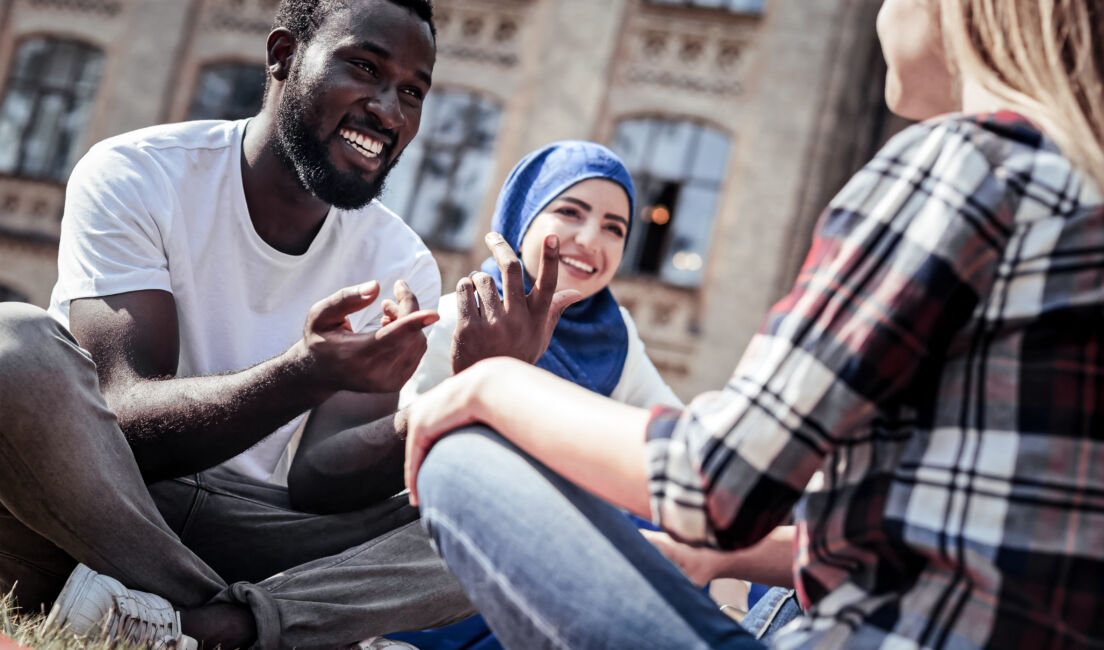Getting back together, making assumptions, and 5 links worth your time
We disagree on more than politics

What are you most looking forward to when we can all get together in person again?
Are you looking forward to getting together in person again?
That second question wouldn’t have occurred to me a few weeks ago, but I recently realized that I’ve been making assumptions about other people’s enthusiasm for the return of in-person gatherings.
Post-vaccination life
My state’s health department notified me that I would soon be eligible for the vaccination. This was the news I’d been hoping to get! Soon, my life might resemble what “life” used to be, and I could do all those basic things I haven’t done for the past year or so, like hugging my friends or sitting around a dinner table with them for long discussions.
Surely, that’s what we’re all looking forward to, right?
As I started talking with friends about our soon-to-be rediscovered freedom, I learned we weren’t all on the same page. Several people looked anxious, and some said they weren’t sure, even with both doses of the vaccine, if they’d be ready to head back to in-person meetings and events. One person told me this had little do with fear of the virus and more to do with preference. “The adjustments we’ve had to make really suited my introvert tendencies,” he said.
I should know better
It’s my job to encourage people who disagree to talk with one another about the things that matter to them. If I’d been discussing immigration policy or politics with my friends, I would have been very careful to resist making assumptions about people’s viewpoints. I spend my workweek encouraging intellectual humility and bringing attention to resources that promote viewpoint diversity. And somehow, in the course of discussing the post-covid world, all that knowledge went right out the window and I assumed everyone else felt the same way I did.
We don’t just disagree about politics or policy. We have different levels of comfort about the prospect of getting together in person again. In the same way I shouldn’t make assumptions about my friends’ views on climate change, I shouldn’t assume they’re as excited as I am about getting together for dinner parties. I know that listening carefully to others’ political viewpoints helps me better understand them, and it is equally true that listening carefully to their concerns about the risks of meeting in person to discuss those viewpoints will help me better understand them and have more productive conversations.
Lessons learned
In this week’s episode of the podcast, I talk with Liz Joyner of The Village Square and Jeremy Garson of the Bridge Alliance. As people who spend a lot of time thinking about how to “bridge ideological divides” through conversation, we reflect together on how our work changed over the course of the past year. We also talk about the lessons we’ve learned and how we’ll apply those in the post-covid world.
And our five links this week offer food for thought on the challenges of coming back together when we’re all comfortable doing so. I hope they’ll help you have productive conversations about what that might look like!
5 links worth your time
- What if we’ve forgotten how to socialize? The Economist – Pamela Druckerman asks, “How will we cope with being together again?” We’ve all changed a lot over the past year of isolation, and that will affect our interactions with one another when we get back to meeting in physical spaces together. Druckerman considers the possibility that some of us will want to make long-term changes to our social interactions as a result of the past year.
- The Perplexing Psychology of Returning to ‘Normal,’ WIRED – A science journalist, Matt Simon, argues that vaccination won’t be like “some switch will flip, and your stress will melt away.” At some point, we’ll be able to reflect on the experience of the past year and what we’ve learned, but the uncertainty we’ve been facing makes it unlikely that time will be soon.
- Stop Saying We Can’t Go Back to Normal After Vaccines, Reason – We should be responsible and not engage in reckless behavior after we get vaccinated, but Bonnie Kristian worries that messages of caution can also become “discouraging and detrimental.” Can we find a better balance between being careful and pessimism?
- MBAs Wander Minecraft-Like Campus for Covid-Era Networking, Bloomberg Businessweek – Business students at top schools around the country aren’t waiting for the vaccine. They’ve created online spaces in order to approximate the experience of what in-person networking looks and feels like. It remains to be seen, however, whether these tools will continue to be used when students have the option of being face-to-face in person.
- Late-Stage Pandemic Is Messing With Your Brain, The Atlantic – As Ellen Cushing writes, “We have been doing this so long, we’re forgetting how to be normal.” Our habits have changed, and that affects our recollection of the habits and activity we engaged in before the pandemic. Cushing interviews brain scientists to help explain what has changed and how that will affect a return to the world of pre-pandemic interaction.
Photo by Viacheslav Iakobchuk on Adobe Stock